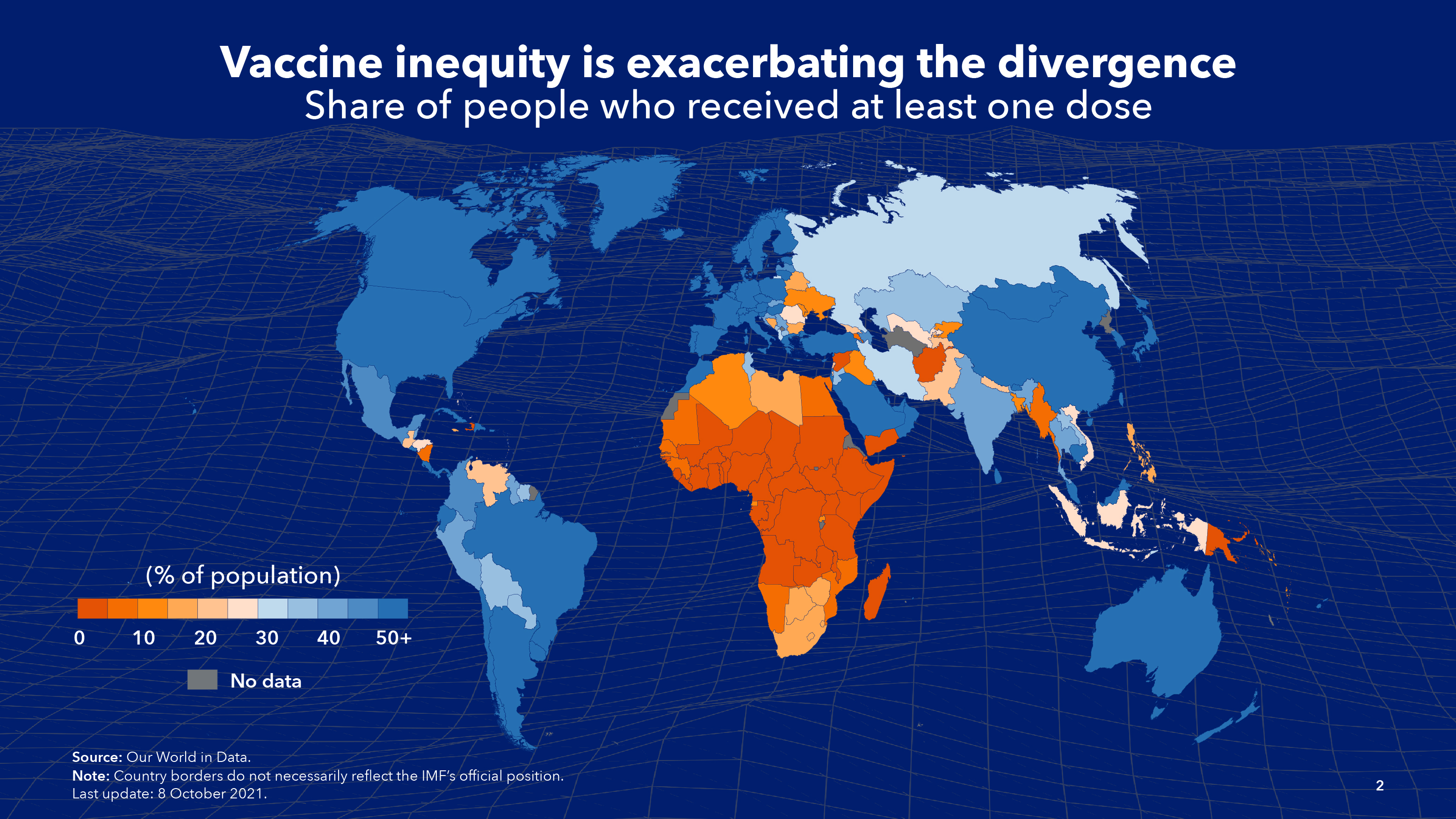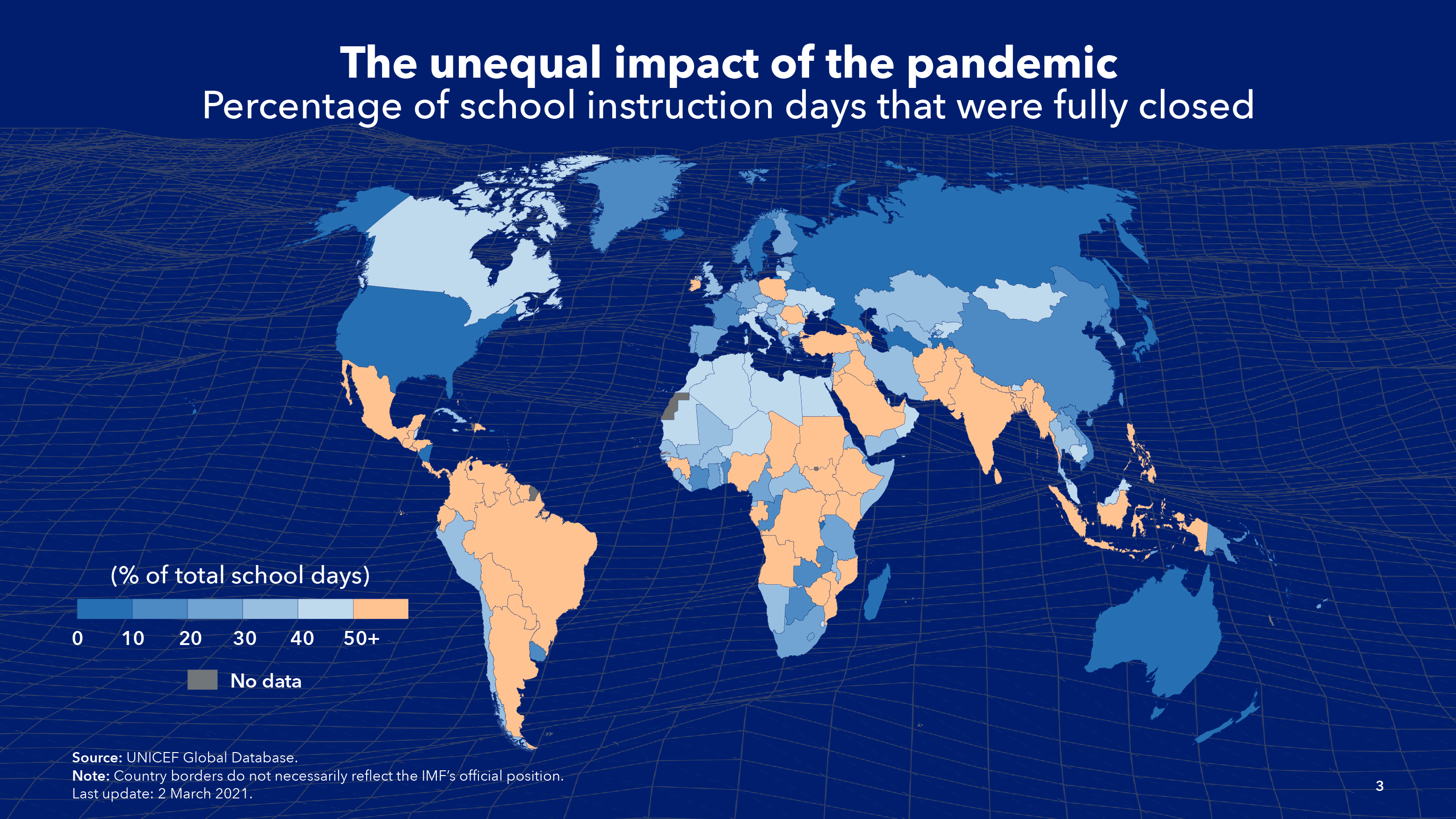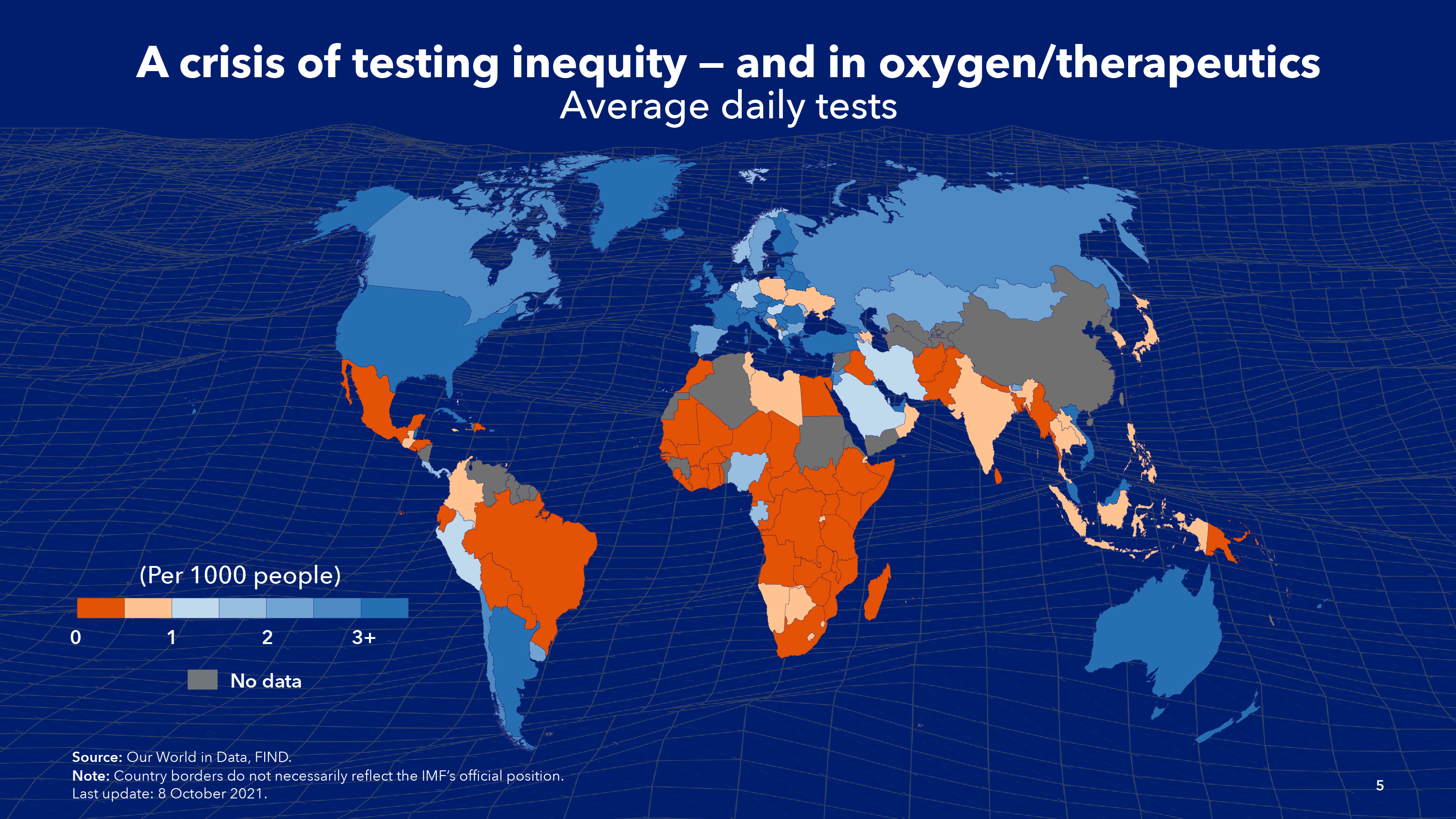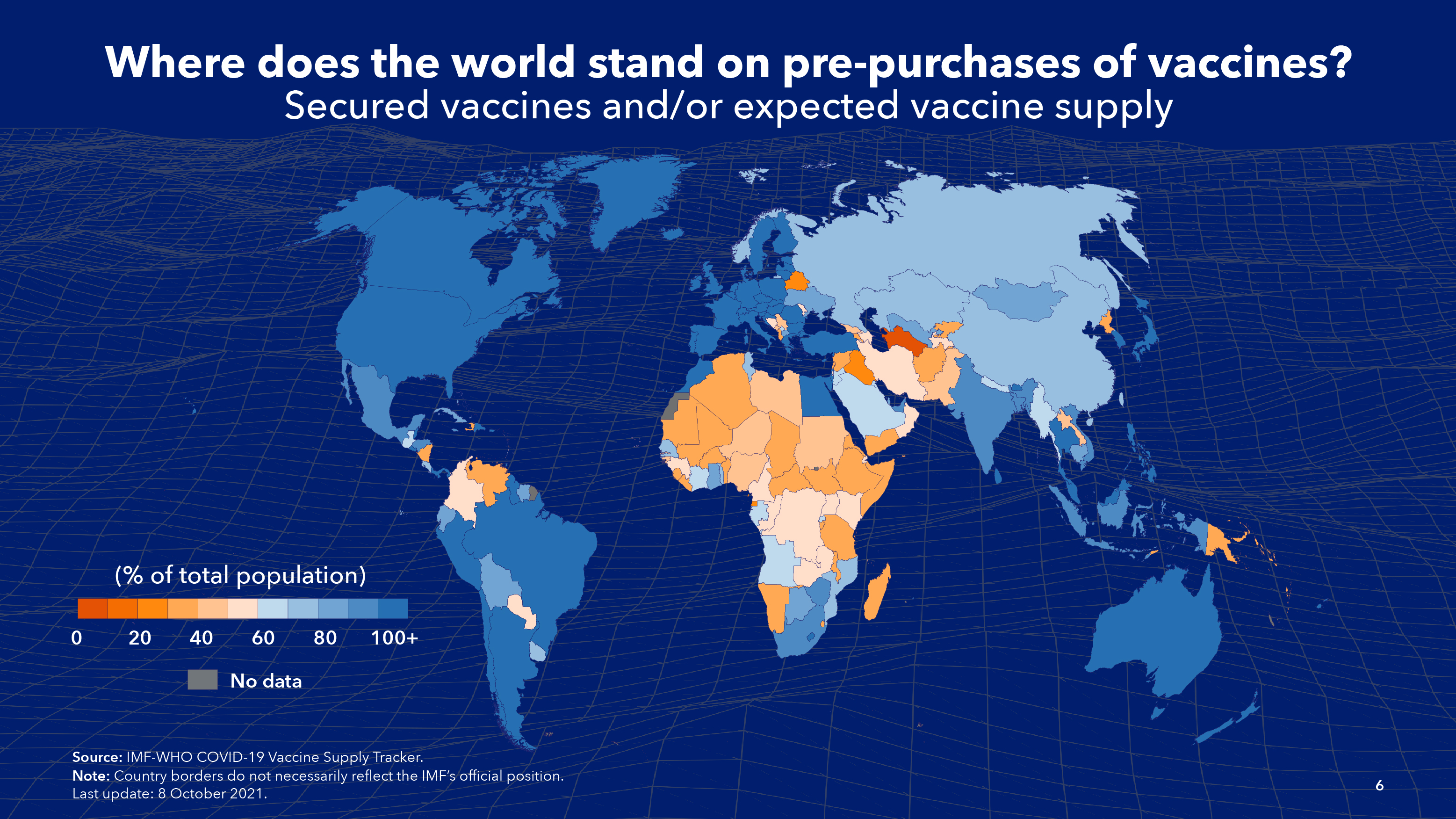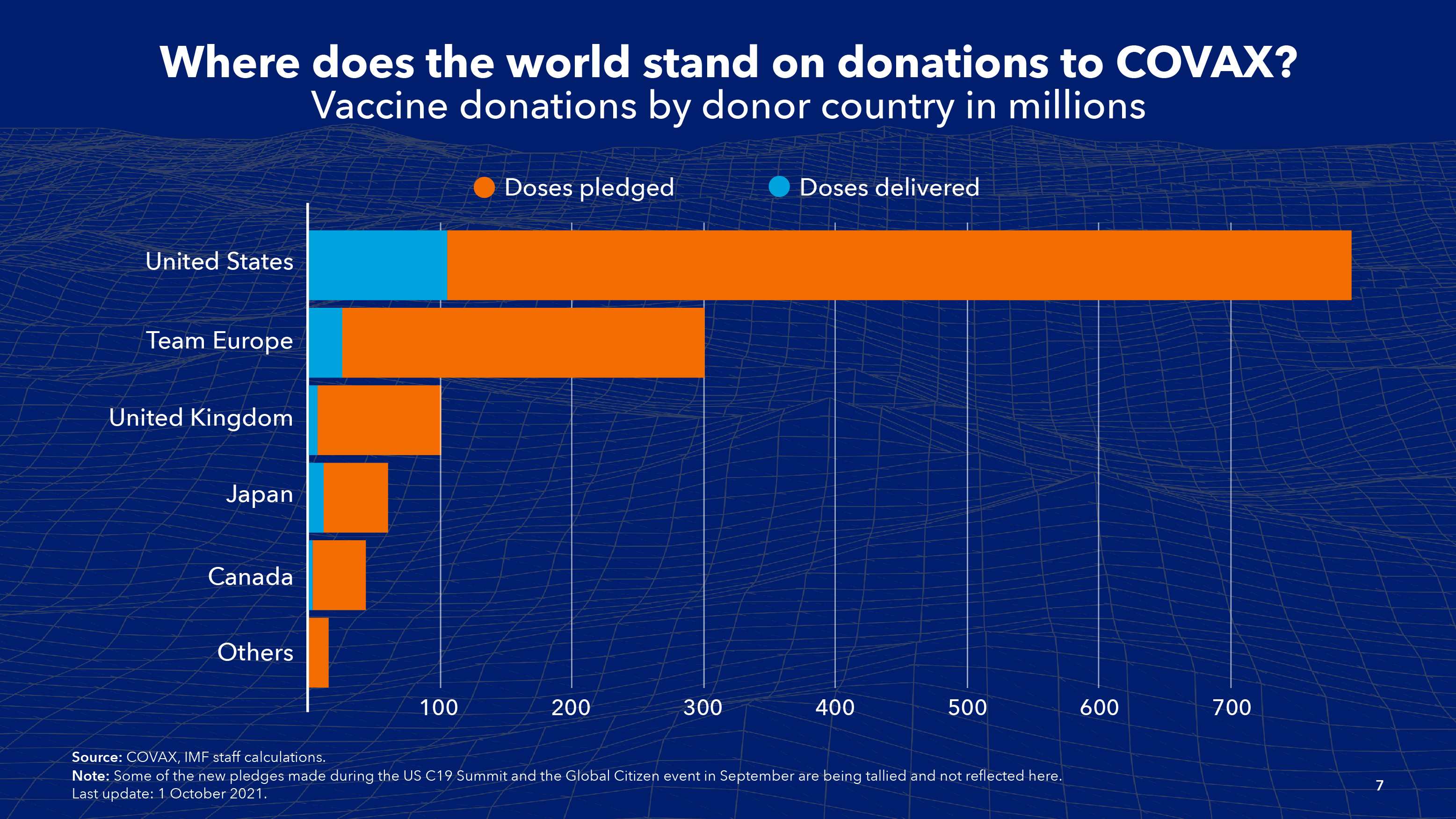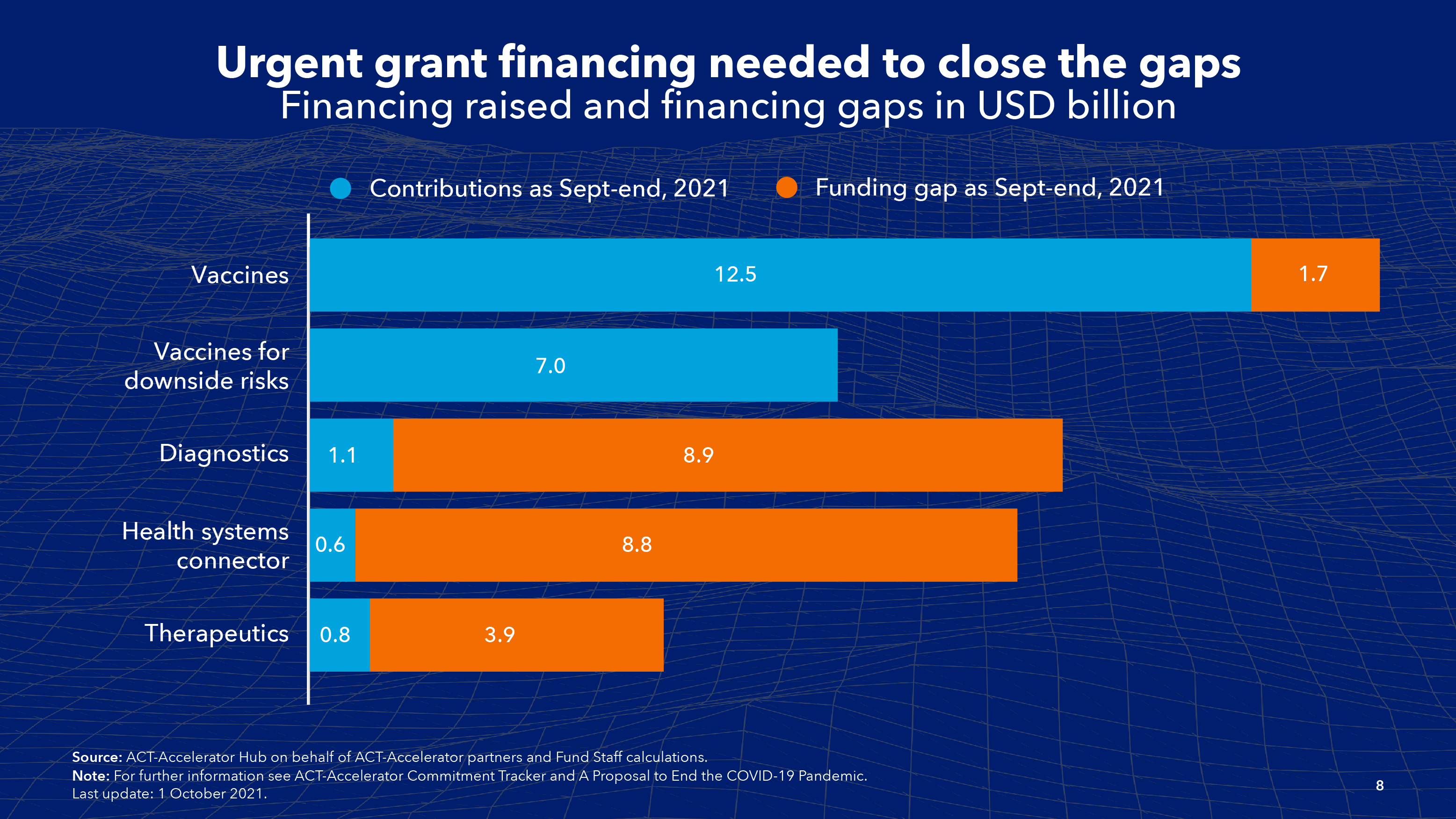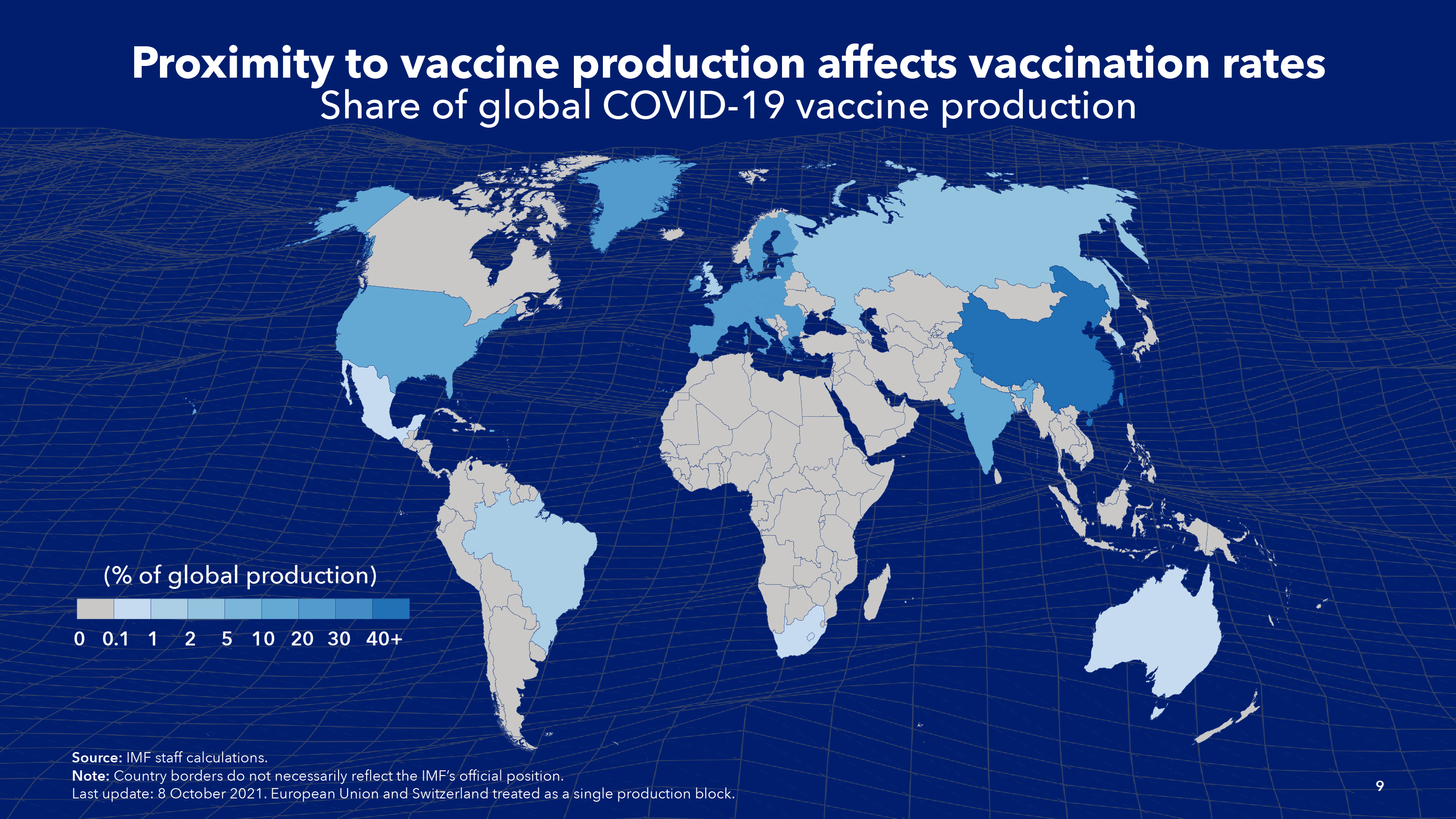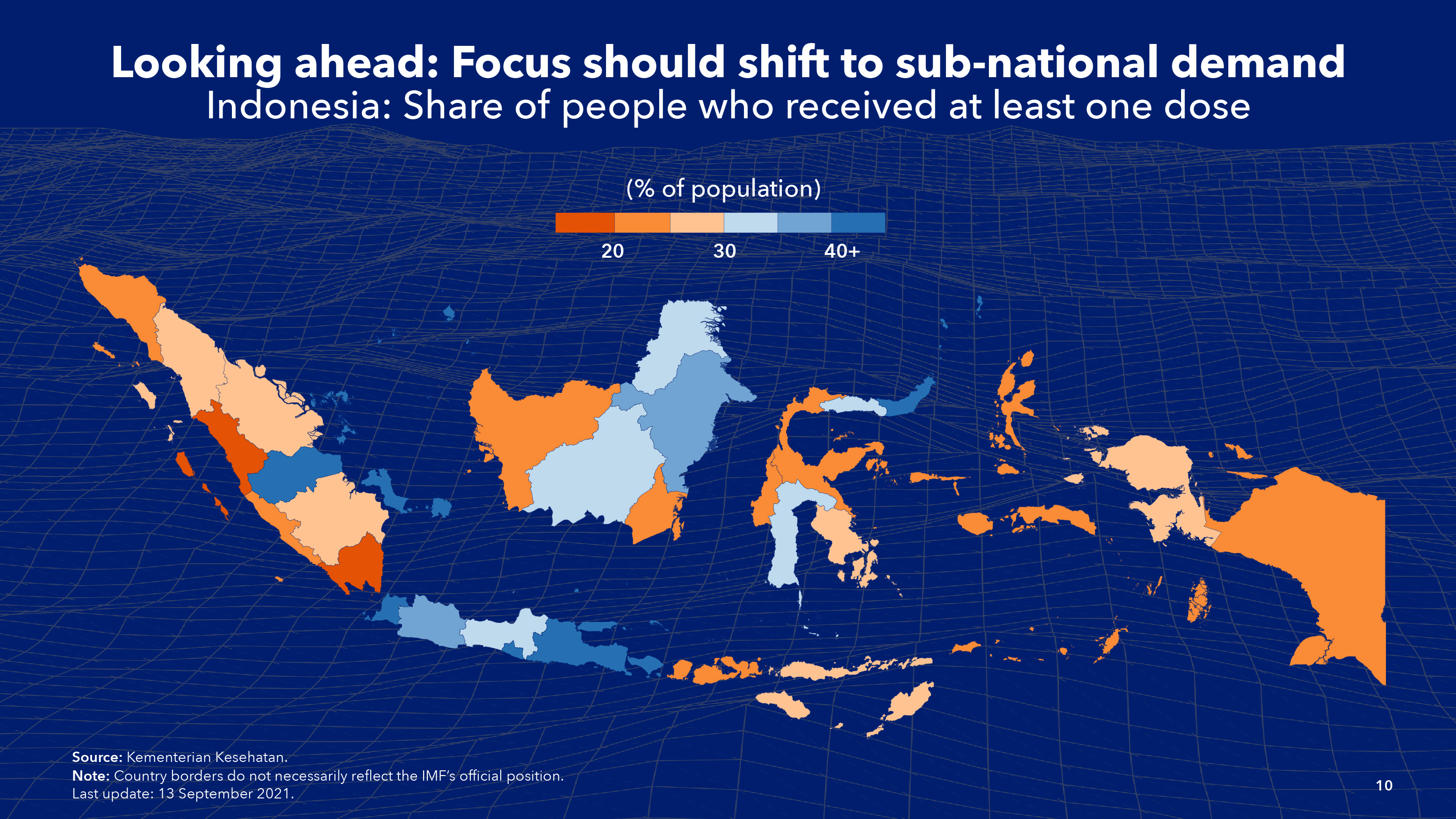A Roadmap to End the COVID-19 Pandemic
2021 Annual Meetings Event
October 18, 2021
The surge in the Delta variant suggests that the pandemic may be with us for longer, and may require booster doses, better testing and therapeutics, and more financing. So what can data teach us about the pandemic?
In a conversation moderated by ABC News' Elizabeth Schulze, Chief Economist Gita Gopinath and Ruchir Agarwal, Head of the IMF's Global Health and Pandemic Response Taskforce use data to explore how countries can exit the pandemic.
Event Report
Global deaths from the COVID-19 virus amount to approximately five million. Outbreaks continue in many countries, affecting public health and global supply chains. The surge in the Delta variant suggests that the pandemic may be more prolonged, necessitating booster doses and additional financing. Panelists used available data to explore what is needed to end the pandemic globally.
Key Points:
Divergent recoveries. Gopinath highlighted that recoveries in per-capita incomes are expected to be unequal, driven in part by vaccine inequity. This underscores the need to ensure that: (i) 40 percent of persons in every country are vaccinated by the end-2021; (ii) risks related to variants are managed; and (iii) lives are saved through testing, therapeutic, and diagnostic.
Vaccine and testing access. Gopinath noted that Bhutan was able to vaccinate most of its adult population in one week, highlighting the importance of a coordinated push and sufficient vaccine supply. She also emphasized the benefits of greater access to testing, and noted that, in Africa and Latin America, access was well below the target of one test per 1000 persons daily.
Remedial measures. Agarwal stressed the need to address gaps between secured doses of vaccine and delivered doses, through delivery swaps between developing countries with low vaccine rates and advanced countries. In addition, it is essential to lift cross-border restrictions on exports of vaccines and the raw materials needed to produce them. Grant financing is also needed to close funding gaps and accelerate the delivery of various tools to developing countries. On the demand-side, it is important to overcome vaccine hesitance and fight misinformation.
Role of the Fund. Gopinath highlighted the Fund’s multifaceted approach in tackling the pandemic and noted that the new SDR allocation in August had increased the reserves of countries and their ability to finance vaccines. The Fund is working to ensure that SDRs can be channeled to countries that need them more.
Quotes:
- “The problem isn’t procurements of vaccines, because already large amounts of vaccines have been produced and procured by countries around the world.” Ruchir Agarwal
- “We have the science, and we have the technology needed to get shots in arms and to do the testing… We just have to make it available at scale to all parts of the world.” Gita Gopinath





